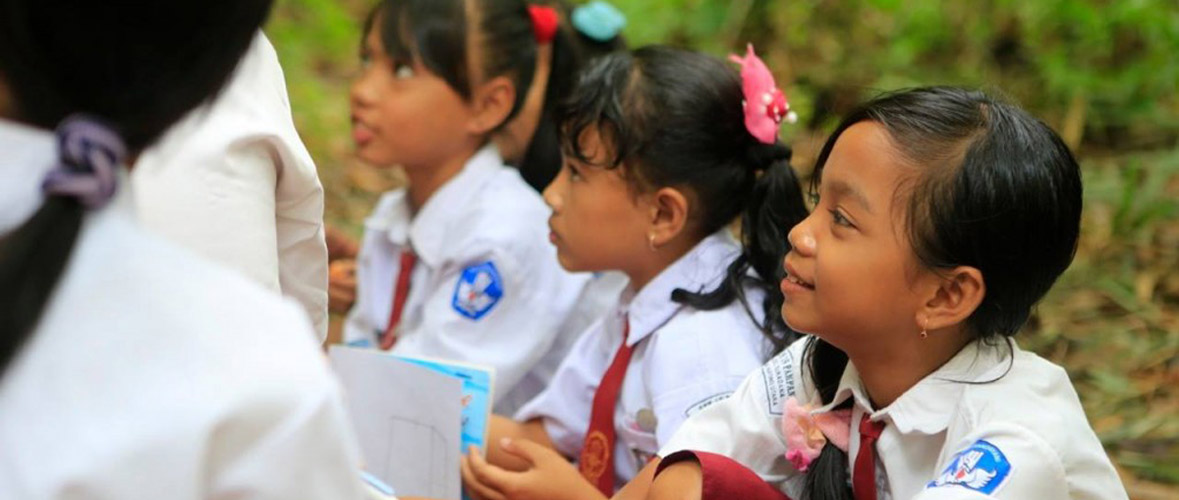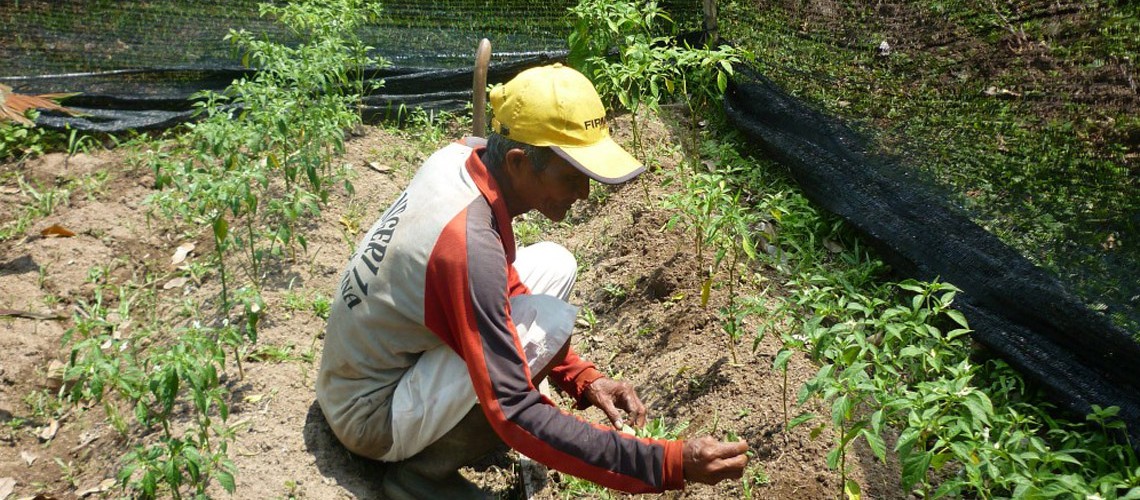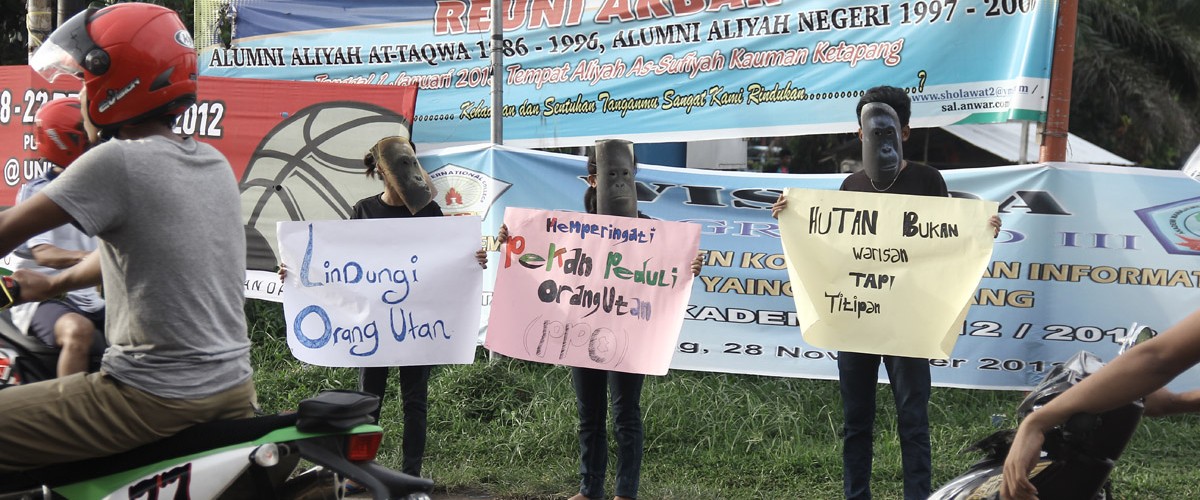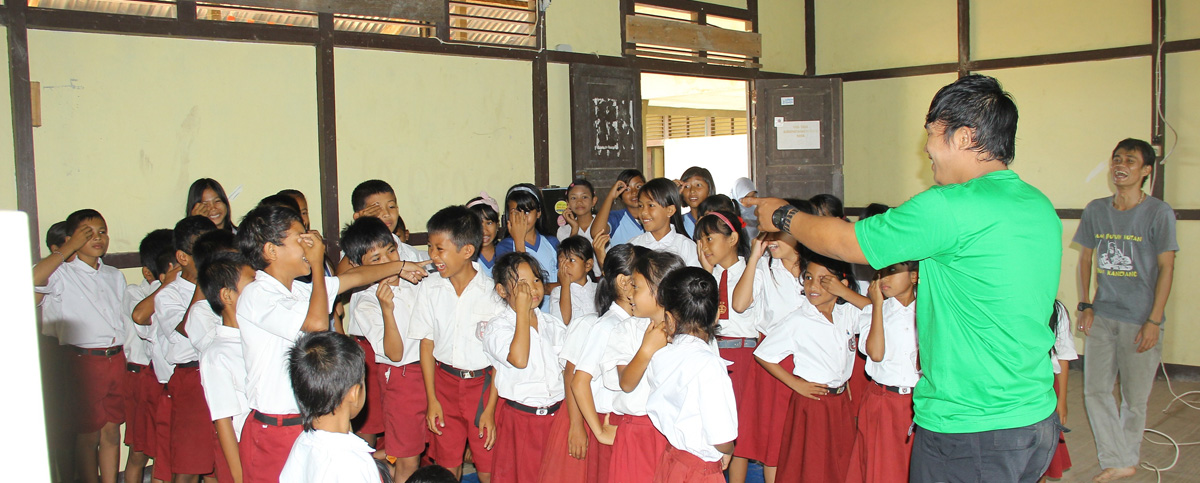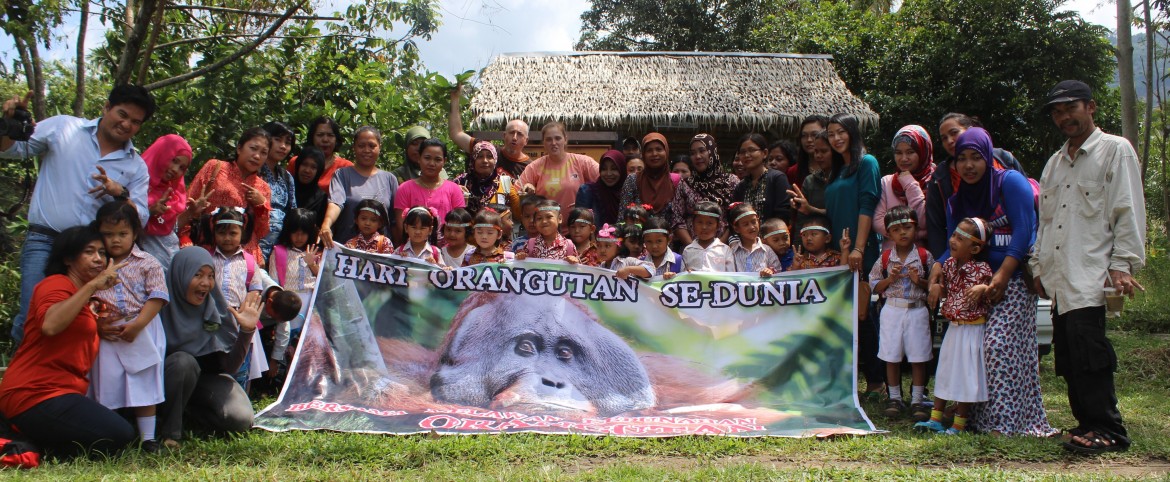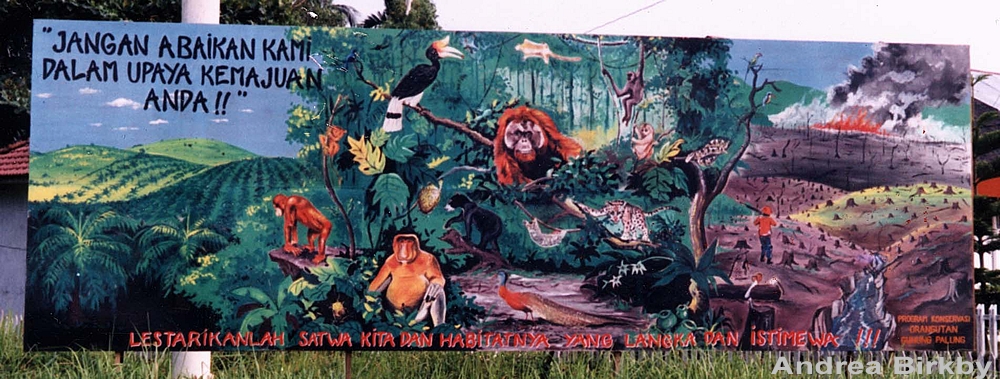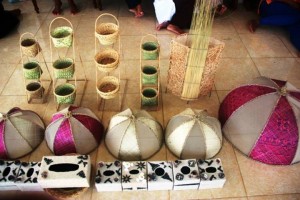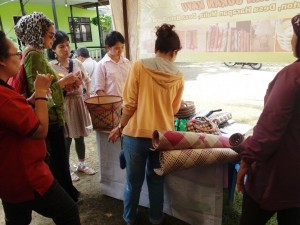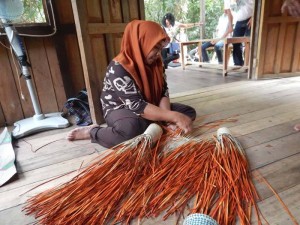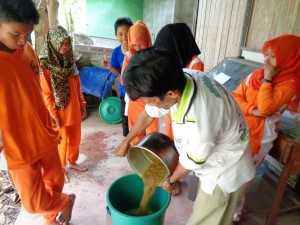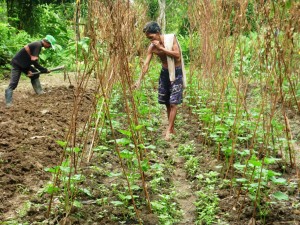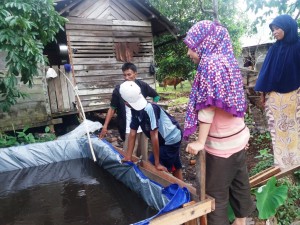Forest Friendly, Instead of Environmentally Destructive, Livelihoods
Finding steady work and earning enough income to support a family remains a very real challenge to many of the communities living around Gunung Palung. Most adults are under-educated and there are very few employment options for them in the villages. It is no surprise, then, that many communities depend on exploitation of the rainforest in and around Gunung Palung National Park for income, be it through logging, small- and large-scale agricultural activities, or hunting of wildlife. Protecting these forests takes these sources of income away, and building local capacity for sustainable alternatives is an essential conservation strategy. We employ a participatory method, working with local people who are highly motivated to learn these sustainable livelihoods, and as participants have become more successful over the years, more and more slash-and-burn farmers and loggers are interested in joining our program. Participants have shared with us that if they can earn more through our sustainable, alternative methods, they can afford to stop their environmentally destructive activities all together.
In 2009 GPOCP/YP established our Sustainable Livelihoods Program, and since then, we have been working closely with communities and local government to help people adopt “forest-friendly” livelihood options, thus reducing their dependence on economic activities that exploit the environment. Our current program consists of three strategies: 1) Supporting our Non-Timber Forest Product (NTFP) artisan groups; 2) Helping farmers adopt organic methods and increase the efficiency of their existing land; and 3) Teaching community groups to set up aquaculture (fish farming) in their villages.
- Some of the products made by GPOCP/YP’s NTFP artisans
- Interested buyers at a local festival
- Weaving demonstration at Bentangor Environmental Education Center
Our NTFP artisan groups operate in four villages in the GPNP buffer zone: Sejahtera, Pangkalan Buton, Batu Barat, and Harapan Mulia. Group members, the majority of whom are women, weave traditional handicrafts from readily available forest products. These crafts, with the help of GPOCP/YP and our partners, are then sold at local, national, and international markets and art expos. Our original four groups encompass approximately 60 local households, with an additional group of 10-15 junior and high school students who are mentored by Ibu Ida, our most experienced craftswoman. These artisans have also been invited to teach at local elementary and high schools, teaching students about the local culture, heritage, and skills to pass on the handicraft traditions. A recent success story is that of Ibu Vina, a local woman from Sejahtera village. She previously earned income by harvesting rocks and sand from inside of the National Park to sell to construction companies. However, she has now completely stopped that work and dedicates her time to weaving jewelry and tikar mats from readily available forest materials. In 2016 our artisans sold 1,158 products, earning about $4,500 total, a significant increase from sales in previous years. These artisans have also been formally recognized as community leaders by the local government, and in March they signed a formal, public commitment to conserve and protect Gunung Palung National Park. This commitment, facilitated by GPOCP/YP’s Sustainable Livelihoods team, was the first agreement of its kind between community members and the National Park Service.
Another project in our Sustainable Livelihoods program is organic agriculture. We teach farmers to use more environmentally-friendly organic methods and to increase the efficiency of their land, preventing the need for further deforestation in and around the National Park. Currently our organic farming work remains focused on Pampang Harapan village, where our Bentangor Environmental Education Center is based. The majority of Pampang citizens are farmers, and they traditionally have cleared land inside of the Park to earn income. We continue to work with them to show them methods and ways to take advantage of the land they already have. In 2016 integrated the livelihoods work into our Customary Forest Initiative, and as a trial run we held an organic agriculture training in Padu Banjar village, which was a huge hit. Participants learned to make organic compost and pesticides from household materials and kitchen waste, and it was so well received that we have now integrated this into our routine activities. In the coming months we aim to train four more villages on these methods.
In 2015 we initiated aquaculture/fish farming products in the local villages of Pampang and Tanjung Gunung. Creating fish ponds requires relatively little input, just a few tarps and fish food, and has thus proven a productive livelihood method. By 2016, our initial group of five trainees had already completed their first first harvest, and they used the income from that to purchase fry (baby fish), thus continuing the cycle. They have also reported that some of their neighbors are now interested in learning how to start their own fish farming business! We are optimistic that aquaculture will be a popular livelihood activity, and because fish is a staple of the Indonesian diet, there is consistent demand for the product. This is important because in the past with other livelihood options, for example selling NTFP products, finding easily accessible markets has been a challenge.
- Sustainable Livelihoods team member Asbandi teaches a school group how to make organic fertilizer
- Pak Sulai of Pampang village tends to his organic crops
- Members of Tanjung Gunung check on their fish pond
